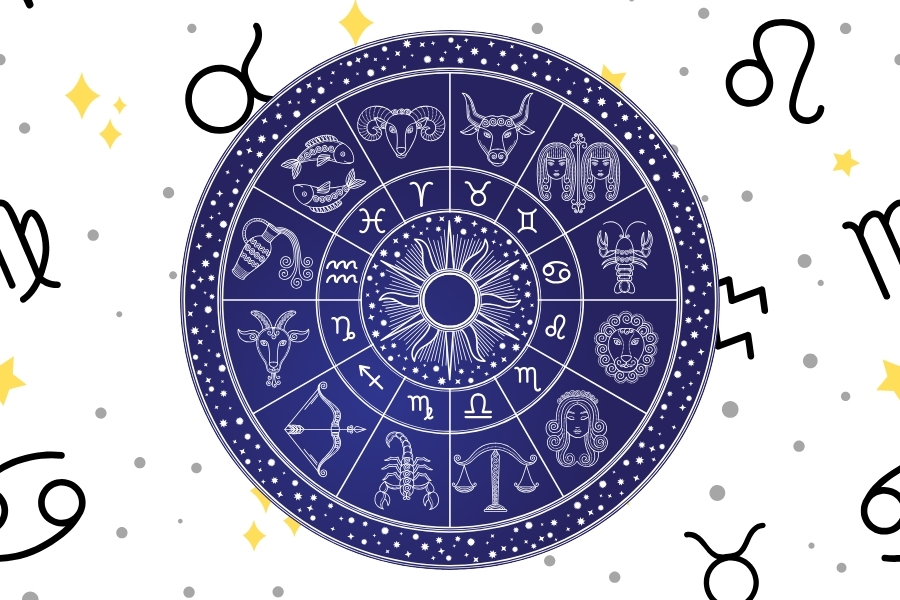
In recent years, terms related to divination have become more prevalent as interest in astrology has surged. Despite the debates about the legitimacy and accuracy of its concepts, divination is real and influences people’s lives.
While the basics of astrology have been heavily commercialized in recent years, I believe astrology is actually a tool that can help shape and navigate specific aspects of your life. If used correctly, one could thrive more than one realizes with their understanding of astrology overall by using it to be more self-conscious and aware of their own life patterns.
When looking into astrology, a person must look at their birth chart to understand it better. A birth chart is composed of planetary aspects that hold many components that define who a person is for their inner self and can provide an outlook on that person’s life.
The location of the planets within the houses is determined by the time and date of your birth — even a few minutes could make a significant impact on the composition of your chart, as it can affect your specific rising sign, therefore affecting the planetary aspects within your chart.
These planetary aspects are organized under the twelve astrological signs, and each birth chart is uniquely specific for each individual. A birth chart is detailed to analyze various things, such as how an individual can best express themselves in love or career matters, or even interpret how an individual best communicates or acts.
The inner planets of astrology — Sun, Moon, Mercury, Venus, and Mars — determine the true sense of oneself and how you are individually different from those around you. The outer planets — Jupiter, Saturn, Uranus, Neptune and Pluto — represent individuals collectively, as they pertain to certain periods that demonstrate key lessons that impact your life.
The appeal of astrology has increased over the last few years as more people from the current generation have developed a new fondness for its ideas.
As of 2022, 27 percent of people in the United States believe in astrology. More and more people want to learn about it and implement it in their lives. However, consumerism and corporations have noticed the public interest, and marketing has shifted toward catering to the public’s newest interest.
The marketing of astrology has skyrocketed in recent years, with many stores aiming to sell products or services that relate to the idea of astrology in different ways. You will see coffee shops market specific drinks by aligning them with the twelve zodiac signs, or you can see bookstores marketing books that are worth reading based on your astrological sign.
When you walk around in different stores, you can find merchandise and various little knickknacks that are meant to be marketable to astrology enthusiasts and fanatics, even if they have any direct correlation to astrology. They are usually just little souvenirs with mediocre ties to the ideas of astrology, even if they have no significant meaning.
Online entertainment sites that provide personality quizzes use some form of clickbait with zodiac signs and astrology to draw in engagement and interactions for their own financial gains. These quizzes are tied to random things like “What sort of food relates to your zodiac sign?” or “Choose an actor to relate to your zodiac sign.”
These marketing tactics are meant to draw in audiences yet have no significance to the ideas of astrology. They commercialize the ideas of astrology for their own benefit rather than teaching people beneficial information.
Skeptics and scientists see astrology as a pseudoscience or something that does not have a reasonable or valid basis for being proven true. Some experts do not believe in the concept of astrology and do not believe that the timing of your birth and the placements of the planets during your birth could potentially shift your outlook on life.
However, certain members of the Hindu community believe the stars and planets impact people’s lives, particularly through Vedic astrology.
Vedic astrology is the idea that the stars and planets influence the lives of people, and it is derived from and predominantly believed in India. It also bases itself on the idea of free will for an individual, as destiny and free will are interlinked with one another. In other words, how one proceeds or responds to what is destined to happen can alter what sort of karma that person can face.
While Western astrology uses the sun, Vedic astrology relies on the stars and constellations to determine the location of the planets. This allows for more precise accuracy when reading charts in Vedic astrology.
Vedic astrology dates back to ancient times, and understanding its concepts requires years of dedicated study and training. Western astrology has seen a rise in makeshift tarot readers and psychics. However, Vedic astrology is developed through generations of teachings.
The astrology business has thrived with its marketing in recent years, and it will only continue to grow as the years go on. However, with the mass marketing that exists, it is key to understand the origin and true concepts before divulging them. In my eyes, understanding the basics of astrology can help a person better understand themselves and evaluate certain traits of their own lives.






